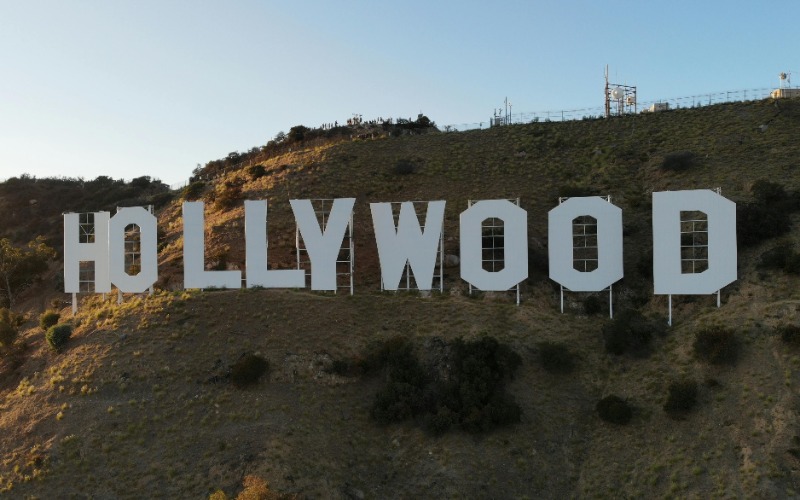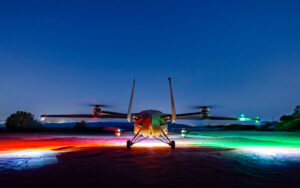There was once a time when celebrities were confined exclusively to the big screen. Their charisma, talent, and charm were only savored in movie theaters, a place that allowed the magic of cinema to unfold. The exclusivity of the big screen was seen as paramount even as television gained traction, as the latter was seen as an inferior medium.
However, we’ve seen an exciting shift in this paradigm over the past few decades. Major stars have transcended big screen exclusivity by starring in the golden age of television and eventually opening up real-time and two-way entertainment on social media. Due to the latter, the term “influencer” is no longer a secondary status but a sought-after career and can even be parlayed into movie-star status. These barriers to traditional stardom have now disintegrated, making way for more accessible and intimate connections between celebrities and their fans.
With that said, the intersection of artificial intelligence (AI) and the world of celebrities prompts a thought-provoking question: Should celebrities use AI techniques to connect better with their audiences?
Improving Engagement and Expediting Media Generation
The idea of using AI to deepen connections between celebrities and fans has gone from science fiction only a few years ago to nonfiction today. This sentiment was recently shared by Canadian musician and producer Grimes, who sparked a conversation about it on the platform formerly known as Twitter. She proposed that AI could empower artists to expand their reach and scale up their time, a sentiment that I also endorse. By using AI, we can amplify the capabilities of celebrities, enabling them to interact with their fans in previously unimaginable ways.
Producing media with AI’s assistant at this speed and scale isn’t just about fan interactions, it’s about better business. 451 Research forecasts revenue from use cases of generative AI like this will skyrocket from $3.7B in 2023 to $36.4B by 2028. Combine that with another recent study that shows AI video production alone will grow into a $1.5B market by 2028, and it becomes clear why large media and entertainment conglomerates see the writing on the wall.
Learning New Languages, Aging Backwards, and Forging New Relationships
AI enables unprecedented production speed and a new way for celebrities to deepen their relationships with even more fans by engaging on multiple levels and fostering a more profound understanding of their audience’s desires and expectations. For example, most people, let alone celebrities, can’t speak every language fluently.
However, generative AI has made incredible strides in breaking down language barriers. Even Hollywood directors like Scott Mann are using AI to address these types of issues. Generative AI models can be trained on large multilingual datasets to translate text from one language to another automatically for localizing content. As such, they can handle complex grammatical structures and nuances that might be challenging for traditional rule-based translation systems.
From there, the technology can convert spoken language into written text and vice versa, which can then be translated or used for subtitling in different languages making generative AI particularly useful for making content accessible to a global audience.
Even now, celebrities who take advantage of AI-powered duplicates can stay true to their brand and identity while achieving age-defying feats that a human star cannot. One of the most notable examples of this is the de-aging process moviegoers have come to recognize in major Hollywood movies such as Will Smith in Gemini Man, Brad Pitt in The Curious Case of Benjamin Button, and Mark Hamill in Star Wars: The Rise of Skywalker. These examples make it clear that generative AI is already a part of mainstream culture and illustrate how celebrities of a finite age can broaden the age demographic they appeal to.
Maintaining and Solidifying Artists’ Identity
Of course, the primary concern that arises when we talk about AI in the context of stardom is the preservation of an artist’s identity. It’s become a major stumbling block in the current Hollywood strike as studios and actors negotiate over the ownership of digital avatar likenesses.
The concern was also explored in a recent and critically acclaimed episode of Black Mirror, highlighting what could happen when streaming platforms take advantage of celebrities’ identities. But even in the episode, AI wasn’t the villain; the real guilty party was unsavory business practices.
It should be a given that royalties should compensate celebrities for their identities.
The primary goal is not to create content that the celebrity wouldn’t endorse but to provide them with the tools to amplify their authentic voices and interactions. It’s a monumental opportunity for stars to go multiple levels deeper in their interactions with their audiences.
However, as with any revolutionary shift, the integration of AI into celebrity culture doesn’t come without challenges. There’s a learning curve involved, and studios, celebrities, and their audiences need time to understand and adapt to this new reality. But this initial resistance is reminiscent of the initial pushback against social media. And look where we are now — celebrities across the globe are using social media platforms to connect with their fans daily.
A Modern Partnership Between AI and Celebrities is Forming
When it comes to Hollywood-driven AI techniques, it’s not just about better connections or deeper interactions; it’s about the future of stardom itself. However, the exact impact will depend on how the industry adopts, integrates, and uses these technologies and techniques. Both actors and writers in Hollywood have some reservations about using AI in their craft. But as we saw with the rise of social media use among celebrities and influencers, AI can also play a similar role in enhancing the stardom of human stars.
Now is the time to embrace the technological evolution of stardom, one AI innovation at a time. Because the future of stardom is rooted in more profound connections, deeper interactions, and a better understanding between celebrities and their fans. It’s a future where stars don’t just influence but also connect, and fans don’t just watch but also interact in real time.
In the evolving landscape of AI and stardom, it’s not just about being a face on the big screen, a voice on a track, or a photo on a magazine cover. It’s about being present, accessible, and authentic. It’s about embracing the possibilities of AI to forge more substantial, more meaningful connections with fans and genuinely revolutionize the future of stardom.











